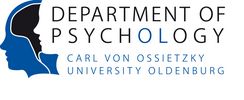Contact
Head
Secretary
Postal address
Research
Research
The research in the division focuses on physiological correlates of cognitive functions such as attention, memory and perception. The methods that are used comprise electroencephalography (EEG), magnetoencephalography (MEG), functional magnetic resonance imaging (fMRI), EEG-Neurofeedback, eye-tracking, neural network simulations, and psychophysics. One main focus is a better understanding of the functional roles of oscillatory brain activity for cognitive functions. To this end, brain oscillations of different freqeuncies are analysed in healthy people and patients, and neural network models are used to test the supposed functions. Recently, non-invasive techniques of transcranial magnetic and electric stimulation (TMS and TES) became available that allow to stimulate the brain with magnetic impulses or alternating currents of different frequencies. We investigate the influence of transcranial alternating current stimulation (tACS) on oscillatory brain activity and the possibility to modulate certain cognitive processes via a modulation of certain frequency bands. This research aims to establish a causal relationship between osciallatory brain activity and human behavior and, therefore, to allow clinical applications. As part of the Cluster of Excellence Hearing4all, we are investigating how brain stimulation can modulate hearing processes.

